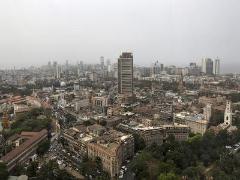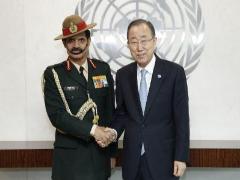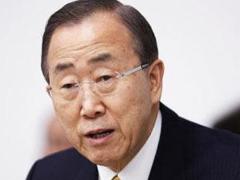Why isn’t India a permanent member of the UN Security Council?
为什么印度不是联合国安理会常任理事国?
以下是Quora读者的评论:
Harun Resit Aydin, Director of Foreign Markets (2017-present)
There are already some good answers here that have already covered the essentials. Therefore, I will tell here except the usual points, the true but unwritten reasons.
India is not a permanent member of the UN Security Council and may never, because:
- India is not one of the major powers who has won the WW2
- It has never tested the nuclear bomb on other innocent people
- Since its foundation and after WW2, it has not participated in any genocide
- Besides some border disputes with its neighbors, it has no aggressive expansionist policies or territorial claims far from its borders and does not interfere in affairs of other countries.
- It plans no invasion of other countries or wants to exploit and steal their energy sources.
- The morality and ethics, beliefs of the Indians would not allow it to ever see thousands of children slaughtered around the world for their interests.
已经有人给出了一些很好的答案,所以我只想说点不寻常,真实但没人提到的理由。
印度现在不是联合国安理会常任理事国,还有可能永远无法成为常任理事国,原因是:
—印度不是二战的主要战胜国之一
—印度从未在其他国家的无辜人民身上试验过核弹
—自其成立以来、自第二次世界大战之后,印度没有参与过任何种族屠杀
—除了与邻国存在一些边界争议外,印度在远离边界的地方没有侵略性的扩张主义政策和领土主张,不干涉别国事务。
—印度不打算侵略其他国家,也不打算开发和窃取其他国家的能源。
—印度人的道德、伦理和信仰不允许他们为了自己的利益在世界各地屠杀成千上万的儿童。
To be honest, why should India have a seat between the world's greatest five murders, those who have killed thousands of innocent people worldwide for their own sake or watched hundreds of massacres from Africa to Bosnia, from Syria to Yemen without to act ?
And why are we talking about a 5-6 member goddamn congregation that has not found a single solution for humanity yet, and why the fate of 7 billion innocent people should be in the mouths of these chosen members.
The world is bigger than 5.
The UN will only do justice and an institute that will provide a solution for the whole world if it brings together all those involved in the world and treats their decisions equally.
When I think of UN I only know the similar pictures around the world for decades and they all look like this:
说实话,为什么印度要在世界五大杀手国之间占据一席之地呢?这些杀手为了自己的利益在全世界杀害了成千上万的无辜人民,或者冷眼旁观了从非洲到波斯尼亚、从叙利亚到也门的数百起屠杀,却不采取行动?
为什么我们要关心一个只有5-6个成员的该死的组织,至今仍未为人类找到一劳永逸的解决方案,为什么70亿无辜人民的命运应该掌握在这些被选中的成员国手中呢?
世界比5个国家大多了。
联合国只会主持正义,一个机构如果能把世界各国凝聚在一起,平等对待,就能为全世界提供一个解决方案。
当我想到联合国时,我只知道几十年来世界各地出现的类似图片:

How for example the UN Dutch Soldiers (b…) handed over thousands of innocent Bosniaks to the Serbian militias who have committed a genocide in one day and killed more than 8.000 people, including women, children..
例如,联合国荷兰士兵将数千名无辜的波斯尼亚人交给塞尔维亚民兵,这些民兵在一天内杀害了8000多人,包括妇女和儿童。
Therefore, be careful, because whenever you ask the UN for justice..
..this will be their gift:
因此,要小心,因为无论何时向联合国寻求正义…
. .这就是他们回赠的礼物:
NO, India has nothing to do here, the permanent members should learn first humanity from India.
不,印度与此无关,常任理事国应该首先向印度学习人性道德。
Anonymous
The current permanent members of the Security Council are the five nations that were made permanent members in the charter when the United Nations was founded, and the five nations that are legally recognized as "nuclear weapons states" (although permanent membership is not officially contingent on the possession of nuclear weapons). Those five countries are:
1.United States
2.United Kingdom
3.France
4.Soviet Union (now Russia)
5.Republic of (now the People's Republic of )
译文来源:三泰虎 http://www.santaihu.com/48240.html 译者:Joyceliu
目前安理会常任理事国五个常任理事国,是在联合国成立时的五个永久成员国,这五个国家在法律上被认为是“核武器国家”(尽管常任理事国并未正式取决于是否拥有核武器)。这五个国家是:
1.美国
2.英国
3.法国
4.苏联(现俄罗斯)
5.
At the time that became a permanent member, it was not a particularly strong or influential country. However, it was one of the "big four" Allies during World War II, and had a strong relationship with the United States. It was in the interests of the other Allied powers on the Security Council, particularly the United States, to build influence and relations, and to recognize the nation as a key player in the war. India was also one of the charter members of the UN, joining in 1945 (the same time as the P5), but it was not an independent nation during WWII. (Its legal independence and partition came about in 1947, after which Pakistan applied for membership separately.)
成为常任理事国时,还不是一个特别强大或有影响力的国家。然而,它是二战期间的“四大”盟国之一,与美国关系密切。承认是战争中的关键角色,符合安理会其他盟国的利益,特别是美国的利益。印度也是联合国宪章成员国之一,1945年加入联合国,但在二战期间,印度并不是一个独立的国家。(1947年,巴基斯坦获得了法律上的独立和分治,之后巴基斯坦申请加入联合国。)
There are many benefits to being a permanent member of the Security Council: permanent rather than rotational membership (duh), a general increase in prestige and influence, and of course, veto power. Traditionally, has been reluctant to use its veto, except with regard to issues that pertain directly to national interests. (The United States is the only nation to liberally use its veto, almost always against resolutions that are critical of Israel.)
There's a lot of criticism of the Security Council today, and its general ineffectiveness, its strong bent towards the already powerful P5, the veto power itself...and the issue of geographic representation. As it stands, the permanent members of the Security Council have a heavy European bias. In fact, the only nation that represents a non-white majority is , a country with a population that numbers over a billion. In light of that fact, I think the real question ought not to be why is a member while India isn't, but why all members except are white Western nations. (Well, I suppose we know why: these are mostly former colonial powers that gained significant wealth through the exploitation of the "Global South". But moving on...)
A number of nations have made cases to become permanent members. Japan and Germany were losing powers after World War II, but are now two of the largest economies in the world, and the two largest financial contributors to the UN after the United States. Germany has a powerful position in the EU, and Japan has the support of much of Southeast Asia and the Pacific Islands in its bid, through lobbying via financial aid.
作为安全理事会常任理事国有许多好处:常任理事国而不是轮换理事国,声望和影响力得到提升,当然,还拥有了否决权。传统上,很少动用否决权,除非是在与国家利益直接相关的问题上。(美国是唯一一个滥用否决权的国家,对批评以色列的决议总投否决票。)
今天,人们对安理会提出了诸多批评,批评它缺乏效率,对强大的五常有强烈的倾向,对否决权本身意见颇多。目前看来,安全理事会常任理事国对欧洲有严重的偏见。事实上,唯一一个非白人占多数的国家是,一个人口超过10亿的国家。鉴于这一事实,我认为真正的问题不应该是为什么是成员国,而印度不是,而是为什么除了以外的所有成员国都是西方白人国家。(好吧,我想我们知道原因:这些国家大多是前殖民国家,通过剥削“全球南方”获得了巨额财富)
也有其他国家申请成为常任理事国。日本和德国在二战后失去了权力,但现在它们是世界上最大的两个经济体,也是仅次于美国的联合国最大的两个出资国。德国在欧盟拥有强大的地位,而日本通过金融援助进行游说,获得了东南亚和太平洋岛屿大部分国家的支持。
However, India probably has the strongest case for becoming a permanent member:
1.It's the world's largest de ocracy with a population that will eventually eclipse that of .
2.It's part of an otherwise underrepresented region, with large unrepresented religions (Hinduism and Islam).
3.It's a large financial contributor, and a major contributor of UN Peacekee troops.
4.It frequently serves as a non-permanent (rotational) member, and usually wins the votes of almost all member states in its bids for non-permanent positions.
5.It has the backing of some major players (France, Russia, United Kingdom, United States--or President Obama, anyway), a number of European, Asian, and Latin American nations, and the African Union.
然而,印度成为常任理事国的理由可能是最充分的:
1.它是世界上最大的民*国家,其人口最终将超过。
2.这是一个其他国家都不足以代表的地区,有很多没有代表权的宗教(印度教和ysl教)。
3.印度是联合国维和部队的主要出资国,也是联合国维和部队的主要参与国。
4.它经常担任非常任(轮任)成员国,通常在竞选非常任理事国席位时赢得几乎所有会员国的投票。
5.它得到了一些主要国家(法国、俄罗斯、英国、美国——或者奥巴马总统)、一些欧洲、亚洲和拉丁美洲国家以及非洲联盟的支持。
However, there are a few obstacles:
1. - 's position on India's bid has always been...ambiguous. I think that its current position is that it's open to consideration, but not ready to approve of India's permanent membership. India- relations are better now than they've been for some time, irrespective of the Kashmir can of worms, 's ties with Pakistan, and other issues. However, opposes Japan's bid, which India supports, and will likely not support India for as long as India continues to support Japan. (Confusingly worded, I know.)
2.The United States - The official American policy has been, for some time, to oppose India's permanent membership on the Security Council. Apparently this is because India is not a signatory of the Nuclear Nonproliferation Treaty, and possesses nuclear weapons--a source of great annoyance to the US. However, President Obama has declared support for India's bid. It's not clear what the US position is anymore, but we can be pretty sure that there will be no progress in the near future.
3.Pakistan - Naturally, Pakistan opposes India's bid, and while it doesn't have as much influence in itself, it has close ties with both and the United States (though recent events have thrown these alliances into question). Also, the very fact that India and Pakistan are embroiled in conflict that frequently appears on the Security Council agenda is an issue.
4.The structure of the Security Council itself - This is by far the biggest problem. India is already on the verge of having the verbal support of all the P5, yet there's a very slim chance that it will gain a permanent seat anytime soon. This would mean an amendment o the UN Charter, which requires a two-third vote of general members, and the support of the P5. But whatever lip service the P5 may pay to supporting India, they will likely keep tabling the issue because allowing one country to join the permanent members sets a precedent that might open a floodgate and upset the power balance. Why change things when they are comfortable the way they are (if inefficient)? Wouldn't it further legitimize the bids of other countries--Japan, Germany, Brazil, etc. all of whom seem to support each others' bids as G4 nations? The UN can't even seem to manage to raise the number of nonpermanent members on the Security Council, an issue that has been on the table for sometime. How many eons will it take for them to add the first new permanent member, if ever?
然而,印度也面临几个障碍:
1.—对印度申请的立场一直…模棱两可。我认为,它目前的立场是,它愿意考虑,但并不想同意印度成为常任理事国。如果不考虑克什米尔问题、与巴基斯坦的关系以及其他问题,如今的中印关系比历史上的有段时间要好。但反对日本的申请,而印度支持,只要印度继续支持日本,很可能不会支持印度。
2.一段时间以来,美国的官方政策一直是反对印度成为安理会常任理事国。显然,这是因为印度不是《不扩散核武器条约》的签署国,而且拥有核武器——这让美国非常恼火。然而,奥巴马总统已经宣布支持印度的申请。目前还不清楚美国的立场,但我们可以非常肯定,在不久的将来可能都还是会保持不变。
3.巴基斯坦—自然,巴基斯坦反对印度的申请,虽然它本身没有那么大的影响力,但它与和美国都有着密切的关系。此外,印度和巴基斯坦经常卷入安理会议程上出现的冲突,这本身就是个问题。
4.安全理事会本身的结构—这是迄今为止最大的问题。印度已经接近得到五常所有成员国的口头支持,但它在短期内获得常任理事国席位的可能性非常小。这意味着要修改《联合国宪章》,需要全体成员国三分之二的投票,并得到五常的支持。但是,无论五常口头上如何支持印度,它们都可能继续搁置这个问题,因为允许一个国家加入常任理事国开创了一个先例,可能会打开闸门,打破权力平衡。如果现状让人并无不适,为什么要作出改变呢?这会不会进一步使其他国家的申请合法化——日本、德国、巴西等似乎都彼此支持。联合国似乎甚至无法增加安理会非常任理事国的数量,这个问题已经讨论了一段时间了。如果要再增加常任理事国,他们还得等上多少个世纪?
Kushagra Garg
Imagine this:
想象一下这个东西:

This chocolate tart is divided into 5 equal parts. Each piece is claimed and enjoyed by a powerful-famished person.
Now there is another powerful person who is claiming a piece for himself. Actually he wants the tart to be divided into 9 equal parts.
If this claim is accepted, it will result in reduction in the size of piece for each person.
Thus none of the 5 people actually wants to share and redistribute the tart.
这个巧克力馅饼被分成五等份。每一份都被一个极度权利饥渴的人占有享用。
现在,又来了一个有权有势的人,想为自己谋取利益。实际上,他想把馅饼分成9等份。
如果这个要求被接受,将导致每个人的馅饼都缩水。
因此,这5个人都不想对馅饼进行分享并重新分配。
Similar is the case with permanent seat of UNSC. The P5 do not want the structure of Security Council to be changed. Because it will result in dispersion of power among 6 nations.
Moreover, India is pushing for reforming the structure of UNSC to have 9 permanent members instead of 5. This is because India is one of the G4 nations. G4 nations include Brazil, Germany, India and Japan. All these four nations have great impact on world economy and are members of elected, non-permanent members of UNSC. These four nations support each others bid for permanent seat.
Now you see, giving in to their demands means changing the structure of UNSC. According to Article 108 of Chapter XVIII of UN Charter,
Amendments to the present Charter shall come into force for all Members of the United Nations when they have been adopted by a vote of two thirds of the members of the UN General Assembly… ….including all the permanent members of the Security Council.
There the problem lies. Given the today's scenario, it's feasible to get support of two third members of UN general assembly.
联合国安理会常任理事国席位的情况也是如此。五常不希望改变安理会的结构。因为这将导致权力分散到6个国家。
此外,印度正在推动改革联合国安理会的结构,由5个常任理事国改为9个常任理事国。这是因为印度是四国集团之一。四国集团包括巴西、德国、印度和日本。这四个国家都对世界经济有着巨大的影响,都是联合国安理会经选举产生的非常任理事国。这四个国家互相支持争取常任理事国席位。
现在你看,对他们的要求让步意味着改变联合国安理会的结构。根据《联合国宪章》第十八章第一百零八条,
本宪章的修正案经联合国大会三分之二会员国的表决通过后,即对联合国全体会员国生效……包括安全理事会所有常任理事国。
问题就在这里。鉴于目前的情况,获得联合国大会三分之二成员国的支持是有可能的。
But getting unambiguous approval and support of all the P5 members is a tedious job.
1.USA says they support Japan to get into the council because USA knows Russia and will use the veto against it.
2.USA, France, UK and Russia says they support India because they know will surely use it's veto.
3. clearly knows that this is not possible given India's all-time relations with Japan. So it's a win-win for .
See, all the 5 supports one or the other nation on the surface. But deep down, none of them really wants the expansion of UNSC.
On a different note, I think had its own diplomatic reasons to oppose India and Japan both. has an ambiguous love-hate relation with Japan
As for India, wouldn't want a powerful neighbour with same powers as it has.
但是得到所有P5成员国明确的批准和支持是一项长期困难的工作。
1.美国表示,他们支持日本加入安理会,因为美国知道俄罗斯和将使用否决权。
2.美国、法国、英国和俄罗斯表示支持印度,因为他们知道会使用否决权。
3.清楚地知道,考虑到印度与日本历来的关系,这是不可能的。所以这对来说是双赢的。
看,这五个国家表面上都支持这个或那个国家。但在内心深处,没有一个国家真正想要扩大联合国安理会的规模。
另一方面,我认为有自己的理由反对印度和日本。与日本有着爱恨交加的关系。
至于印度,不想拥有一个与它拥有同样实力的强大邻国
Deoram Umraow, Caribbean all the way!!
First let me explain why India can't be a member of the UNSC:
1.India has a lot of conflict of interest in the region mainly with Pakistan, Sri Lanka, Bangladesh, and Kashmir and becoming a member will give India advantage to be more aggressive meaning wage war on those countries.
2.India is not a strong de ocracy meaning it's still being governed by religious factions
3.India’s is ranked one of the most corrupt country in the world and is ranked on the corruption scale near to African countries.
4.Also India has a history of genocide and sectarian violence among mainly Christians and Muslims and will not go down well with fellow UN members.
Now coming to the reason why is in the UNSC although they’re a co unist country is because in World War 2 played a very big role in ending the war you see the UNSC which stands for the United Nation’s Security Council was created to maintain peace around the world and to prevent another world war and the countries that made the UNSC was the USA, RUSSIA, CHINA, UNITED KINGDOM AND FRANCE were biggest contributors to end World War 2.
首先,请允许我解释一下,为什么印度不能成为联合国安理会成员。
1.印度在该地区有很多利益冲突,主要是与巴基斯坦、斯里兰卡、孟加拉国、和克什米尔的利益冲突,若获得安理会成员国身份,将给印度带来优势,使其更具侵略性,可能对这些国家发动战争。
2.印度不是一个强大的国家,它仍然受到宗教派别的统治
3.印度是世界上最腐败的国家之一,其腐败程度接近非洲国家。
4.此外,印度有种族灭绝和宗派暴力的历史,无法与联合国其他成员国和睦相处。
现在来说说,能成为安理会成员国,是因为在第二次世界大战中发挥了很大作用,安理会也即联合国安全理事会,它的成立就是为了维护世界和平,防止世界大战再度爆发,联合国安理会的创立国家是美国、俄罗斯、、英国和法国,是对第二次世界大战的结束贡献最大的国家。
此文由 三泰虎 编辑,未经允许不得转载!:首页 > 印度 » 为什么印度不是联合国安理会常任理事国
 苏杰生:印度很快会成为安理会常任理事国,我非常有信心
苏杰生:印度很快会成为安理会常任理事国,我非常有信心 联合国报告:2006年到2016年,印度2.71亿人脱贫
联合国报告:2006年到2016年,印度2.71亿人脱贫 上次退回印度送的直升机?印度这次投票反对马尔代夫竞选“非常任理事国”
上次退回印度送的直升机?印度这次投票反对马尔代夫竞选“非常任理事国” 印度在联合国的10点抨击
印度在联合国的10点抨击 联合国报告:印度经济2017年预计增速7.6%
联合国报告:印度经济2017年预计增速7.6% 联合国报告:印度教育落后50年
联合国报告:印度教育落后50年 联合国秘书长称赞印度维和部队的纪律性,印网友:得感谢英国
联合国秘书长称赞印度维和部队的纪律性,印网友:得感谢英国 联合国秘书长谴责印度空军基地遭恐袭,印网友:谴责有什么用
联合国秘书长谴责印度空军基地遭恐袭,印网友:谴责有什么用